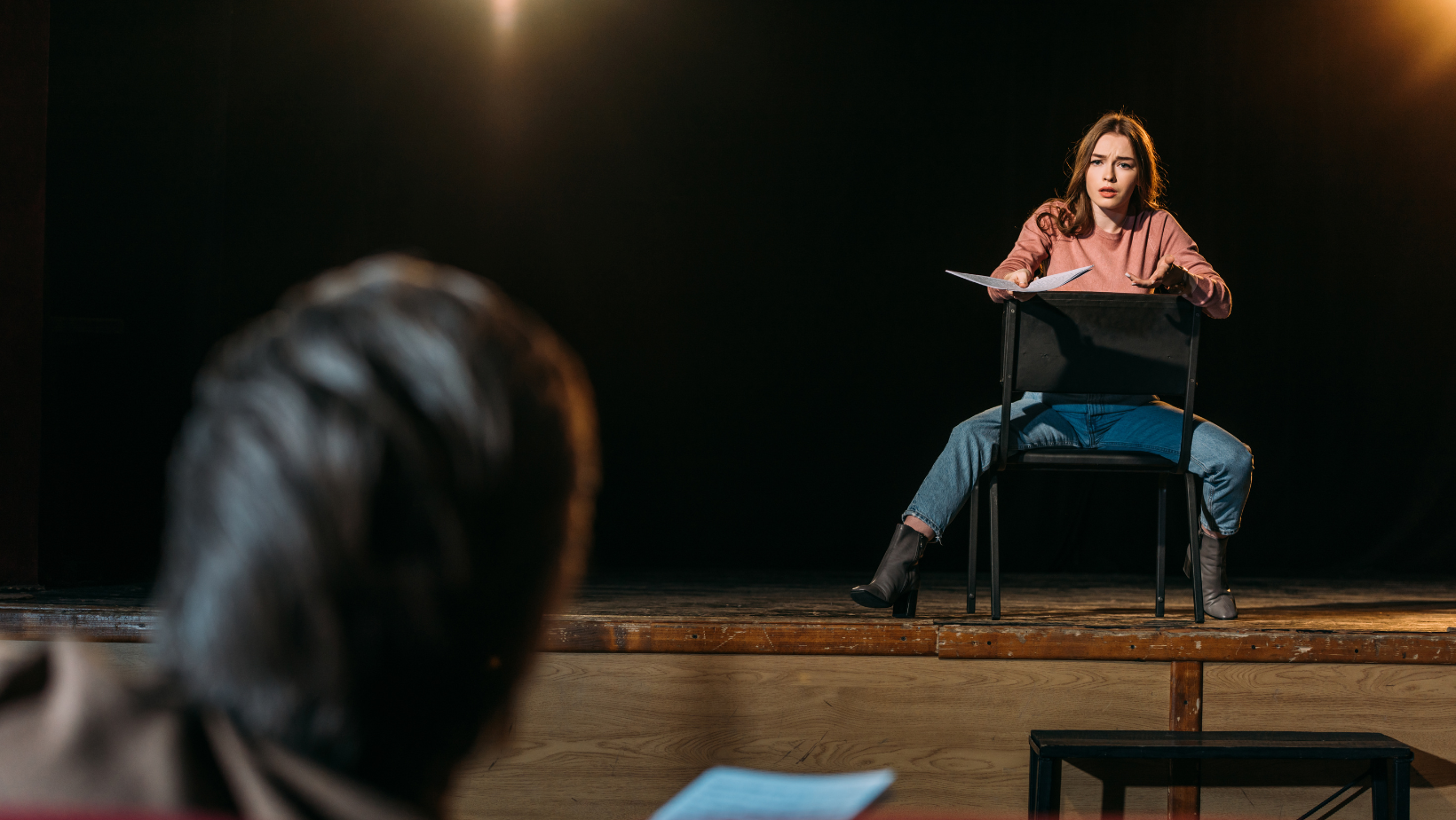The Final Act: Encouraging College Theatre Professors to Move On
by Chris Peterson, OnStage Blog Founder
Dear Professor,
I am writing this letter with a sense of admiration for the impact you've made over the years and with a deep respect for your dedication to theatre education. Your experience, expertise, and creativity have surely shaped the lives and careers of many students who came before me.
But in recent semesters, there has been a notable change in the level of enthusiasm and engagement in your classes. We once eagerly anticipated your classes and being cast in your shows, but now we feel a sense of disconnect. Class projects seem more like tasks to be completed rather than valuable exercises in honing our craft, and rehearsals lack the guidance that once made them so wonderful.
I deeply value the opportunity to learn from you; it's disheartening to see the passion and attention to detail give way to an increasingly lackluster environment.
Perhaps it’s time to move on.
~~~
This is an excerpt I wrote to one of my college professors during my junior year in college. I adored this professor and had noticed that his effort in the classroom fell off the proverbial cliff. He constantly was either late to class or canceled them completely. He fell asleep during a couple of them. His direction style went from insightful to barely noticeable, and he copied what previous productions had famously done.
While I looked up to this man, it was clear that it was time for him to move on. His presence wasn’t helping my education; it was hindering it. And to make matters worse, my family was paying tens of thousands of dollars for this lackluster effort.
So, one night, I wrote this letter to him in a fit of anger and frustration. I never sent it, but I needed to write it to relieve my frustrations.
Theatre education is a discipline grounded in passion, creativity, and a commitment to nurturing the next generation of artists. Professors in this field choose to share their expertise to impart technical skills and inspire students with the transformative power of performance. Yet, the demands of a long teaching career can lead even the most dedicated theatre educators to lose their enthusiasm.
It should also be stated that in an era when college education is increasingly expensive, engaging professors is crucial for students to get the most value from their investment.
So, this is a plea to professors who have stopped caring about teaching to consider stepping down gracefully, preserving their legacy while ensuring a brighter future for their students.
The Impact on Students
Learning from passionate and engaged professors is essential for students pursuing theatre as a career. Theatre is a field where feedback, encouragement, and mentorship are crucial. Students need professors who can help them unlock their creativity, push them to reach new artistic heights, and provide the constructive criticism necessary to refine their techniques.
When professors are no longer enthusiastic, they lose sight of this responsibility. Their feedback becomes inconsistent, their motivation to stage compelling productions fades, and their attention to students' needs diminishes. The impact of this on students like myself cannot be overstated. We lose access to the kind of mentorship that can shape our future careers, leading to frustration and self-doubt.
During one production, I intentionally made poor line reading and character choices to see if I could get a reaction our guidance from my professor; he didn’t notice, nor did it seem like he cared.
Recognizing Burnout
Teaching is a demanding profession that often involves juggling responsibilities beyond the classroom. Professors are expected to mentor students, manage administrative duties, conduct research, and participate in campus events. For theatre professors, the production process adds another layer of complexity, requiring intensive planning, rehearsing, and student coordination.
Over time, these demands can lead to burnout. Signs include:
Fatigue and Lack of Enthusiasm: Feeling perpetually drained and no longer finding joy in the work.
Reduced Creativity: Struggling to develop fresh ideas for lessons or productions.
Detachment from Students: Avoiding student interactions or becoming indifferent to their progress.
Routine Teaching: Relying on old lesson plans and teaching methods without adapting to changing needs.
When professors recognize these symptoms, they may try to soldier on for fear of letting down their students or department. However, acknowledging burnout is crucial in understanding when to step away.
Stepping Away
I must stress that retiring or stepping down is not a failure but a positive step toward maintaining a strong theatre program. Additionally, it allows new educators to bring fresh perspectives and renewed energy into the department.
Stepping down can also allow professors to explore new ways to stay connected to the theatre world. Many retired professors find fulfillment in consulting, mentoring junior faculty, writing, or pursuing personal creative projects. This shift enables them to continue contributing to the field without the demands of full-time teaching.
I should note that I was happy to hear that after my professor finally retired, he threw himself back into his passions of performing and puppetry.
Ending a long-standing career in theatre education is a deeply personal decision. However, it’s vital to recognize when passion and dedication are no longer present. For those professors who feel their passion fading, consider the impact of staying on students and the program.
Let the final act of teaching ensure a bright future for both students and the theatre community.
